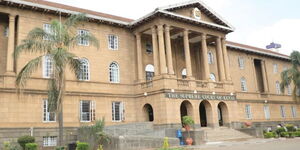The National Treasury under Cabinet Secretary Njunguna has justified the government's decision to privatise the Kenyatta International Convention Centre (KICC) amidst an uproar from Kenyans.
In a detailed privatisation programme in possession of Kenyans.co.ke, the Treasury detailed that the move to sell the iconic facility built in 1973 was informed by competition from privately owned facilities and revenue collection strategy.
Treasury explained that KICC was currently competing with other private companies that were offering services both on the national and international stage.
Privatisation, therefore, will make the state-owned facility sufficient and competitive.
According to the government, KICC was unveiled to offer spaces for national and international meetings, conferences and exhibitions, as well as to promote trade.
"KICC operates in a mature and competitive market sector with other private sector players offering similar services locally and regionally," read the statement in part.
"Privatisation of KICC will generate additional revenue for the government and reduce the demand for exchequer support," the communique added.
A section of Kenyans sought clarity on why the government sought to privatise the facility, yet it was widely considered a national monument.
Further, concerned stakeholders alleged that the move to sell KICC was politically instigated, considering that it recorded good performance in terms of finances and management in recent years, as per Treasury documents.
Other corporations listed for privatisation include Kenya Literature Bureau (KLB), National Oil Corporation of Kenya (NOCK), Kenya Seed Company Limited, Mwea Rice Mills and Western Kenya Rice Mills Ltd.
Kenya Pipeline Company, New Kenya Co-operative Creameries, New Kenya Co-operative Creameries and Rivatex East Africa Limited were also included on the list.
Meanwhile, the government scheduled a countrywide public participation drive for December 11 before the privatisation programme is fully implemented.
"Privatisation and restructuring are geared towards the government’s efforts for fiscal consolidation and spurring economic development through the raising of additional revenue.
"It is also geared towards reducing the demand for government resources among many demanding and competing needs," read the notice in part.












